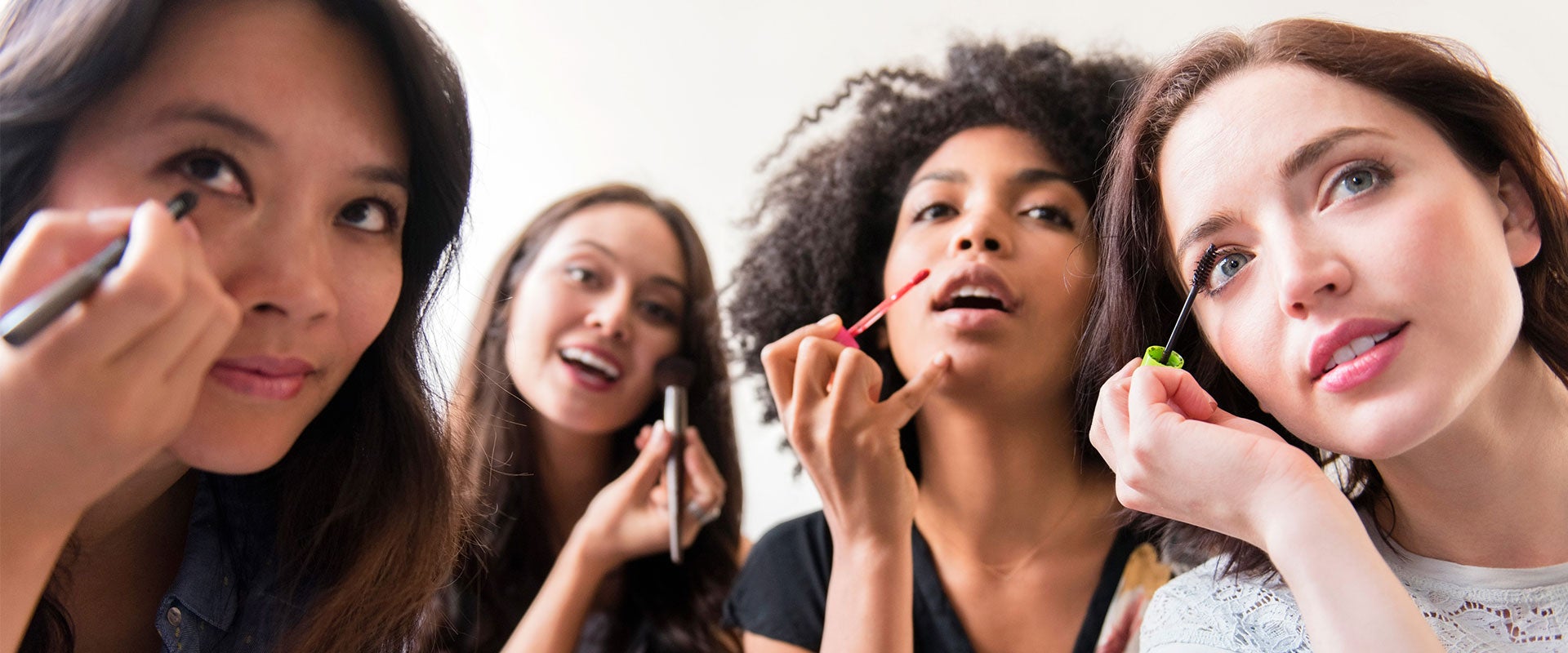Feeling their best selves
As part of its focus on authenticity, Gen Z believes that beauty comes from within. More so than other generations, Gen Z closely associates beauty with intrinsic values — including inner confidence, being comfortable in your own skin and embracing yourself.
A top 2023 trend on TikTok is “ugly beauty.” This style promotes messy makeup and unconventional beauty looks. This isn’t the first time TikTok trends have eschewed societal beauty standards. Last year, bleached eyebrows featured on fashion runways trended on the app. Gen Z is comfortable challenging traditional beauty standards as unrealistic and overly focused on perfection. They prefer self-expression and acceptance that is true to who they are.
A related trend is a minimalistic approach to makeup. “Skinstreaming,” previously dubbed “skinminimalism,” has risen in popularity. Hashtags like #MinimalistSkincare and #BasicSkincareRoutine continue to be popular on TikTok and Instagram. The goal of skinstreaming is to pare down the number of skincare products for a faster, easier and cheaper routine. Less time and attention spent on beauty encourages people to go unfiltered and forget covering up or fixing flaws.
Engaging with the digital generation
Gen Zers are the first to grow up with daily usage of the internet. Compared to the average millennial who uses three screens, the typical Gen Zer uses five. To reach the younger cohort, brands should focus on being digital first. And given how quickly Gen Z moves across platforms and devices, a brand’s emphasis should be on a cohesive and seamless experience.
These digital natives are accustomed to multiple sources demanding their attention at once. Their average attention span for an ad is just eight seconds. They’re constantly consuming information or communicating across platforms. Capturing the attention of Gen Z requires engaging, easy-to-digest content.
As a result, this generation values video content. They’re watching influencer tutorials for before-and-after transformations, new beauty and skincare routines, and specific products or looks. Compared with previous generations who visited the department store makeup counter, these teens and young adults are turning to TikTok and other social media platforms to learn about beauty and skincare products. In fact, 29% of Gen Zers (versus 16% of all adults) cite social media as the type of advertising they pay most attention to. They also actively convert over social media platforms — 50% of Gen Z social media users report making beauty purchases this way (see Figure 3).












